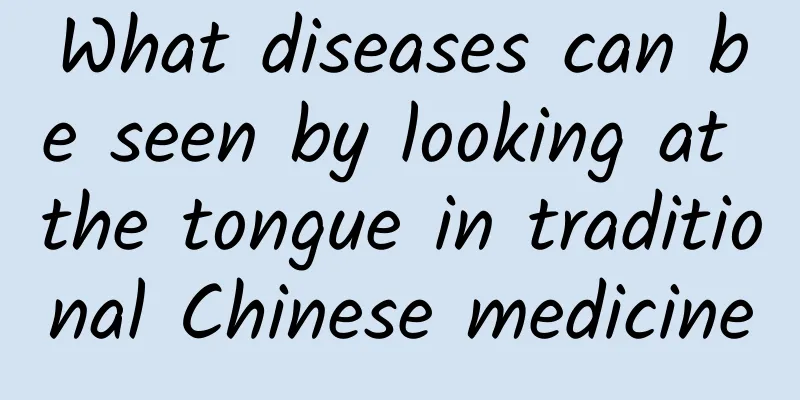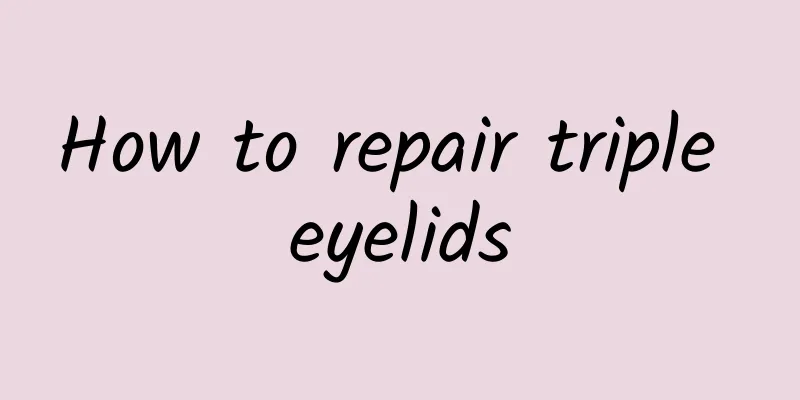What diseases can be seen by looking at the tongue in traditional Chinese medicine

|
There are certain rules for Chinese medicine treatment. Observation, auscultation, questioning and palpation are really good ways to diagnose a disease. When observing, many Chinese medicine practitioners will not only observe the patient's demeanor and complexion, and the part of the body that is affected, but will also observe the patient's tongue. The tongue is mainly observed to see the tongue coating, and the patient's internal condition can be judged by the condition of the tongue coating. So, what diseases can Chinese medicine practitioners diagnose by observing the tongue? Let me introduce them to you below. Tongue coating is a term in traditional Chinese medicine, which refers to a thin, white and moist coating on the back of the tongue of a normal person. Because the tongue coating is produced by the stomach qi, and all the internal organs receive qi from the stomach, changes in the tongue coating can reflect the coldness, heat, deficiency or excess of the internal organs, the nature of the pathogenic factors and the depth of the disease. Observation of the tongue coating includes two parts: observing its color and its texture. Coating color: the color of the tongue coating. Pathological coating colors mainly include white coating, yellow coating, and gray-black coating. Sometimes green tongue coating (mostly transformed from white tongue coating, common in febrile epidemics and damp-heat, a sign of damp-heat stagnation) and moldy tongue coating (red with black and yellow spots on the tongue, common in heatstroke or long-term internal heat, and a sign of long-term damp-heat disease) may also occur. Because Chinese medicine's visual diagnosis is extensive and profound, it is difficult to describe in detail the various mysteries of the tongue coating in a few words. The following lists common tongue coating conditions, the physical characteristics they represent, and methods of body conditioning. Characteristics of normal tongue: Tongue image: pale red tongue, moderately fat and thin, with a thin white coating that is moderately dry and moist. Thick white tongue coating Principles of conditioning: Eat less cold food, eat in moderation, and keep exercising Symptoms: When the six evils such as wind-cold, rheumatism, cold-dampness, etc. are still on the surface and have not yet spread to the inside, and the disease is relatively mild and the Qi of the internal organs is not damaged, a thin white coating will be seen on the tongue. If the tongue coating turns white and thick, it means that there is a problem with the body and the phlegm and dampness are severe, so you should pay attention. A white tongue coating indicates that there is cold in the body. Whether you have eaten cold food or caught a cold, the tongue coating will turn white. Most people nowadays have white tongue coating because they eat fruits and vegetables from the refrigerator and drink cold drinks often. In addition, in daily life, a fat tongue and thick white tongue coating are often seen in patients with obesity, abnormal spleen and stomach function, leading to edema, and excessive phlegm and dampness. Thick, white, greasy tongue coating is also common in patients with hyperlipidemia, arteriosclerosis, and hypertension. |
<<: Is it normal for a four-month-old baby to drool a lot?
>>: What are the alkaline Chinese medicinal materials?
Recommend
What Chinese medicine should I take for Qi deficiency and blood deficiency? Common prescriptions are recommended to you
If female friends suffer from qi deficiency and b...
What are the symptoms of a baby with a hot temper?
Many babies usually need to drink a lot of breast...
Limbs itch and bumps appear when scratched
When our limbs feel itchy, we will scratch them r...
The effect of twist fruit wine
Renzi wine is a fruit wine made from Renzi fruit ...
What are the ways to eat dried Cynomorium songaricum
Kidney tonification is something that everyone is...
What is cervical ulcer?
When it comes to ulcers, everyone knows that it i...
What are some tips for treating oral ulcers?
Oral ulcers are common to us. Although they are n...
Is hepatitis anemia serious? How to treat hepatitis anemia?
Hepatitis A anemia is a very serious disease that...
The efficacy of drinking water soaked with Lobelia
Lobelia is a Chinese herbal medicine with very hi...
The efficacy and function of traditional Chinese medicine placenta
Everyone knows that the benefit of traditional Ch...
How to treat cerebral palsy in children
The root cause of cerebral palsy is the damage or...
How long does it take to get abortion?
In daily life, many women become pregnant due to ...
How do babies behave when they are frightened?
Babies are easily frightened. For example, talkin...
What to do if your feet are itchy and smelly
Although itchy and smelly feet will not cause any...
Anti-inflammatory drugs for eyes
The human body is composed of various organs, and...









